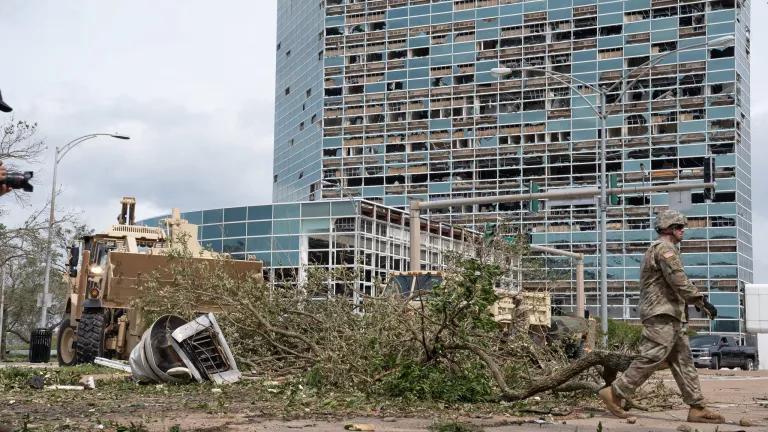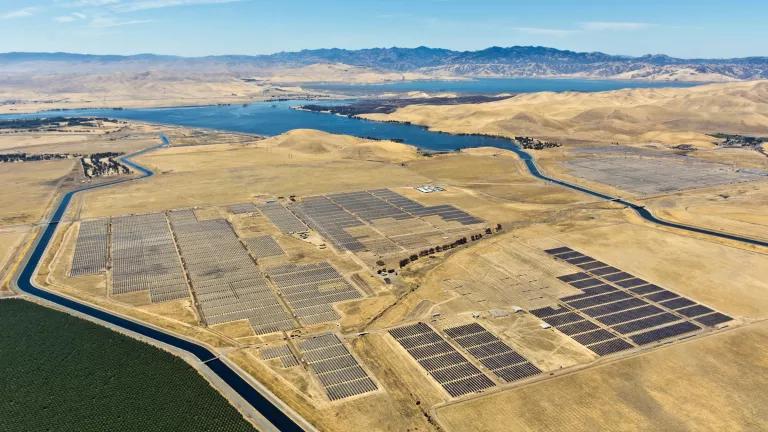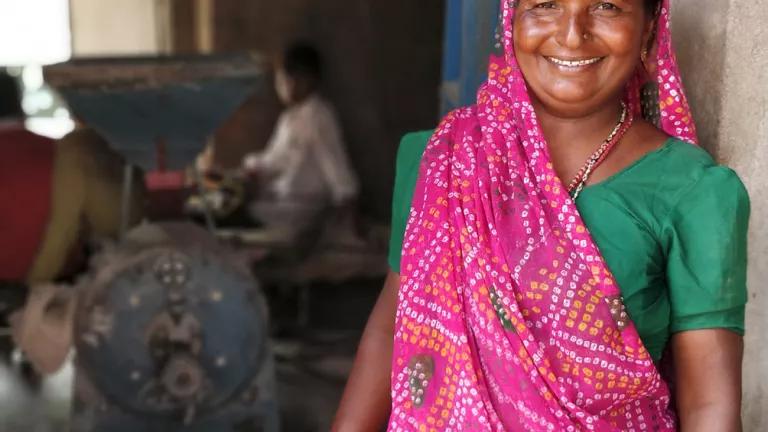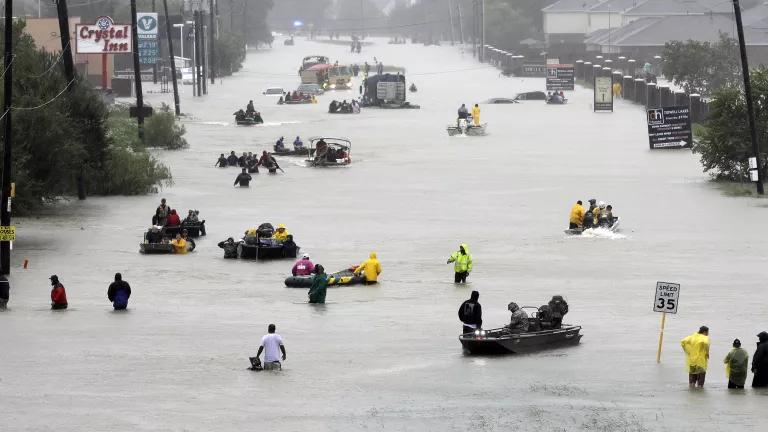Lancet: What’s Needed to Protect Health from Climate & COVID
We need a holistic response to protect our health from the collision of climate change, COVID-19, and racial injustice.

Hurricane Laura damage in Lake Charles, Louisiana.
Louisiana’s had a rough year. It survived a record-breaking five named Atlantic storm landfalls in just five months, including two major hurricanes 13 miles apart. Officials turned away hurricane evacuees in Lafayette, blaming this heartless decision on racial justice protests following city police shooting a Black man. Louisiana also had the 8th highest increase in unemployment in the nation in the last year (from October 2019 to 2020)—bad news where more than half of residents regularly struggle to make ends meet. And COVID-19's third wave is now firmly underway, with cases in the state more than doubling in the last two weeks.
This snapshot of Louisiana, which colleagues and I offered in a new case study published today in the Lancet Countdown U.S. Policy Brief, illustrates how a holistic response is needed to protect the health and well-being of the nation from the collision of climate change, COVID-19, and racial injustice.
Most Concerning Lancet Countdown Yet
The Lancet Countdown is an annual global assessment of how climate change is hurting our health, and recommended steps that governments can take to better protect us. Given the climate damage caused by the Trump administration and the slow progress by the rest of the world, it’s unsurprising that the 2020 report reflects the deepest concern in the Countdown’s 5-year history.
According to the U.S. Policy Brief released today, extreme heat killed nearly twice as many older Americans in 2018 than two decades ago. Heat also conservatively reduced earnings in the U.S. service, manufacturing, agricultural, and construction sectors by $45 billion in 2015. Particulate air pollution—from agriculture, smokestacks, cars, and other industrial facilities—killed more than 68,000 people across the country in 2018. And here’s a spending priority that needs to change: The United States subsidizes fossil fuel industries to the tune of roughly $20 billion per year, the equivalent of $61 per U.S. resident. But when it comes to helping the health sector prepare for the challenges of the climate crisis, the nation only spends $13 per person per year.
Louisiana’s Hurricane Season from Hell
The Louisiana case study in the U.S. Policy Brief examines how Hurricane Laura, industrial air pollution, a deadly heatwave, COVID-19, and longstanding racial and economic inequities created a wicked brew in southwest Louisiana.
And all that was before Hurricane Delta smacked the area again six weeks later.

Search and rescue operation after Hurricane Delta in Lake Charles, Louisiana.
Hurricanes Laura and Delta inflicted some of the worst devastation in the city of Lake Charles, which has high levels of racial residential segregation, poverty, and unemployment—not to mention one of the highest concentrations of petrochemical operations in the country. The storms damaged or destroyed about 95 percent of the buildings in the city, creating a massive housing shortage. According to a recent report by NBC News, many Lake Charles residents are forced to stay in their “unlivable homes” because they can’t afford to go anywhere else. Just another reminder that housing solutions are climate solutions.
The hurricanes also handicapped the response to the COVID-19 pandemic, which already was sickening and killing Black people in the region at higher rates than white people. In southwest Louisiana, the percent positivity rate for the virus was about 5 percent before Hurricane Laura hit. By early November, it was 11 percent. A positivity rate above 3 to 4 percent indicates that local officials aren’t doing enough to rapidly identify new cases of COVID-19.
Unfortunately, Louisiana is last in the nation for spending on state public health protections. And in Calcasieu Parish, the home of Lake Charles, just 0.6 percent of local government expenditures go toward non-hospital health care. That low prioritization of health hurts Louisiana’s ability to determine the scope and scale of post-hurricane health needs, let alone meet those needs.
We Can—and Should—Tackle More than One Crisis at a Time
COVID-19 has illustrated how central a strong, resilient public health and healthcare system is to a thriving society. We simply can’t afford to passively endure one public health emergency after another—whether those emergencies stem from pandemics, climate change, racism, or all three at once.
The Lancet Countdown urges the United States to “prioritize a healthy future for all” by tackling more than one crisis at a time. More specifically, we urgently need to:
- Cut climate changing pollution from agriculture, electricity generation, and transportation in a way that improves health and decreases costs for the most vulnerable populations;
- Invest in state and local public health departments and programs needed for both COVID-19 response and myriad health threats of climate change; and
- Use COVID-19 recovery as “an opportunity to re-imagine and invest in an equitable, just, and healthy future.”
Thankfully, President-elect Joe Biden and Vice President-elect Kamala Harris recently laid out assertive plans to respond to the climate and COVID-19 emergencies that would set us on a better path. But as NRDC President Gina McCarthy wrote shortly after the election, “it’s time to turn campaign promises into climate progress.”
The 70 institutions, organizations, and centers involved in this year’s Lancet Countdown U.S. Policy Brief—including NRDC—agree. And we stand ready to do just that.
Thanks to the other authors of the Hurricane Laura case study: Naomi Beyeler, Adrienne Hollis, Allison Crimmins, Lisa Patel, and Jodi D. Sherman.




